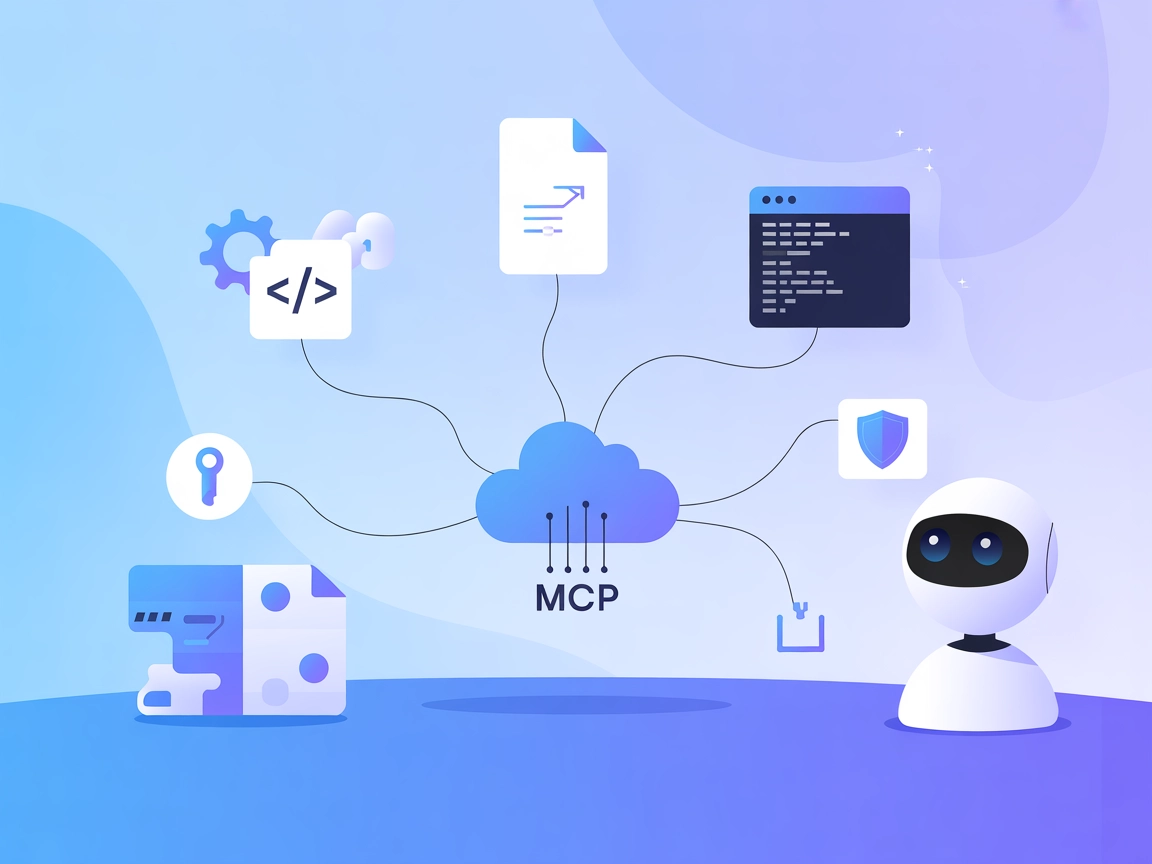
ModelContextProtocol (MCP) Server Integration
The ModelContextProtocol (MCP) Server acts as a bridge between AI agents and external data sources, APIs, and services, enabling FlowHunt users to build context...

Connect AI agents to robust API testing and validation using the Postman MCP Server, streamlining quality assurance and integration workflows in FlowHunt.
FlowHunt provides an additional security layer between your internal systems and AI tools, giving you granular control over which tools are accessible from your MCP servers. MCP servers hosted in our infrastructure can be seamlessly integrated with FlowHunt's chatbot as well as popular AI platforms like ChatGPT, Claude, and various AI editors.
The Postman MCP (Model Context Protocol) Server is a specialized tool that connects AI assistants with the ability to execute Postman collections using Newman. By exposing this functionality through a standardized MCP interface, the server empowers AI-driven workflows to run API tests, manage environment files and global variables, and retrieve detailed test results. This enhances development and testing workflows by allowing AI agents to automate API validation, gather granular failure information, and analyze execution timings. The Postman MCP Server acts as a bridge between LLMs and API testing infrastructure, making it easier to automate and streamline API integration and quality assurance tasks.
@postman/mcp-server@latest{
"mcpServers": {
"postman": {
"command": "npx",
"args": ["@postman/mcp-server@latest"]
}
}
}
Set sensitive keys using environment variables:
{
"env": {
"POSTMAN_API_KEY": "${POSTMAN_API_KEY}"
},
"inputs": {
"apiKey": "${POSTMAN_API_KEY}"
}
}
@postman/mcp-server@latest{
"mcpServers": {
"postman": {
"command": "npx",
"args": ["@postman/mcp-server@latest"]
}
}
}
Refer to the same environment variable pattern as above.
@postman/mcp-server@latest{
"mcpServers": {
"postman": {
"command": "npx",
"args": ["@postman/mcp-server@latest"]
}
}
}
Use the provided env/inject pattern as above.
{
"mcpServers": {
"postman": {
"command": "npx",
"args": ["@postman/mcp-server@latest"]
}
}
}
Use the same JSON pattern for secure variable injection.
Using MCP in FlowHunt
To integrate MCP servers into your FlowHunt workflow, start by adding the MCP component to your flow and connecting it to your AI agent:

Click on the MCP component to open the configuration panel. In the system MCP configuration section, insert your MCP server details using this JSON format:
{
"postman": {
"transport": "streamable_http",
"url": "https://yourmcpserver.example/pathtothemcp/url"
}
}
Once configured, the AI agent is now able to use this MCP as a tool with access to all its functions and capabilities. Remember to change “postman” to whatever the actual name of your MCP server is and replace the URL with your own MCP server URL.
| Section | Availability | Details/Notes |
|---|---|---|
| Overview | ✅ | Basic summary and features found |
| List of Prompts | ⛔ | No prompt templates specified |
| List of Resources | ⛔ | No explicit MCP resources listed |
| List of Tools | ⛔ | No detailed tool list found in documentation |
| Securing API Keys | ✅ | Instructions provided |
| Sampling Support (less important in evaluation) | ⛔ | Not specified |
Based on the available documentation, the Postman MCP Server provides a clear overview and decent setup/security instructions, but lacks explicit details about prompts, resources, and tools in the current repository. Its overall usefulness for automating API testing is high, but the lack of structured MCP elements limits its integration depth. Rating: 6/10
| Has a LICENSE | ✅ (MIT) |
|---|---|
| Has at least one tool | ⛔ |
| Number of Forks | 11 |
| Number of Stars | 64 |
The Postman MCP Server connects AI agents to Postman collection execution via Newman, exposing API testing functionality through a standardized MCP interface. This enables automated API validation, environment management, and detailed result reporting within FlowHunt.
Common use cases include automated API testing in CI/CD, AI-driven API health checks, managing environment files for different testing setups, and retrieving granular test execution results for root cause analysis.
API keys should be stored as environment variables in your MCP configuration. Use the provided JSON pattern to inject keys securely without exposing them in your codebase.
You'll need Node.js, pnpm, and to add the @postman/mcp-server package. Then, update your chosen client's MCP configuration, set environment variables for API keys, and restart your application.
Currently, the server does not specify explicit MCP resources or prompt templates. It focuses on exposing Postman collection execution and reporting capabilities.
Supercharge your development and QA pipelines by connecting FlowHunt's AI agents to the Postman MCP Server for hands-free, repeatable API validation. Experience seamless integration and detailed test reporting.

The ModelContextProtocol (MCP) Server acts as a bridge between AI agents and external data sources, APIs, and services, enabling FlowHunt users to build context...

The Model Context Protocol (MCP) Server bridges AI assistants with external data sources, APIs, and services, enabling streamlined integration of complex workfl...

The Markitdown MCP Server bridges AI assistants with markdown content, enabling automated documentation, content analysis, and markdown file management for enha...
Cookie Consent
We use cookies to enhance your browsing experience and analyze our traffic. See our privacy policy.